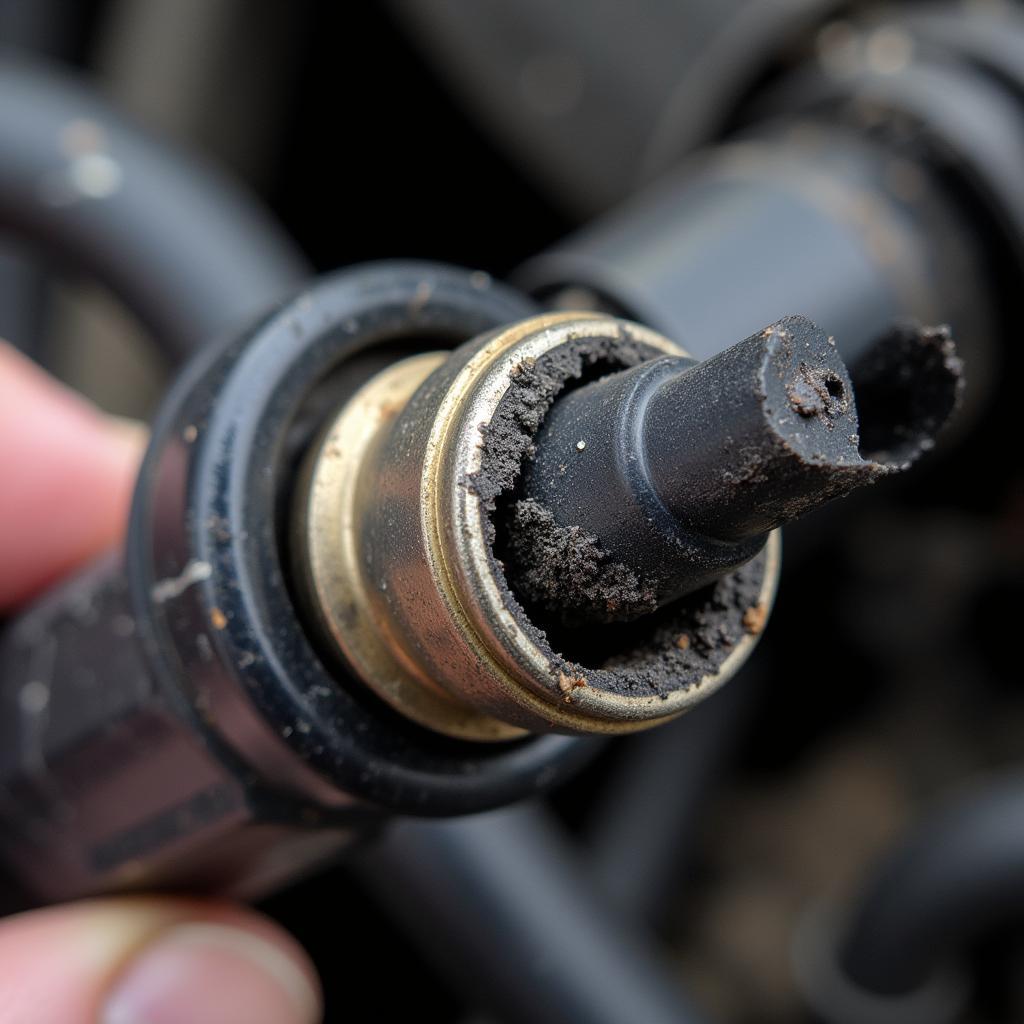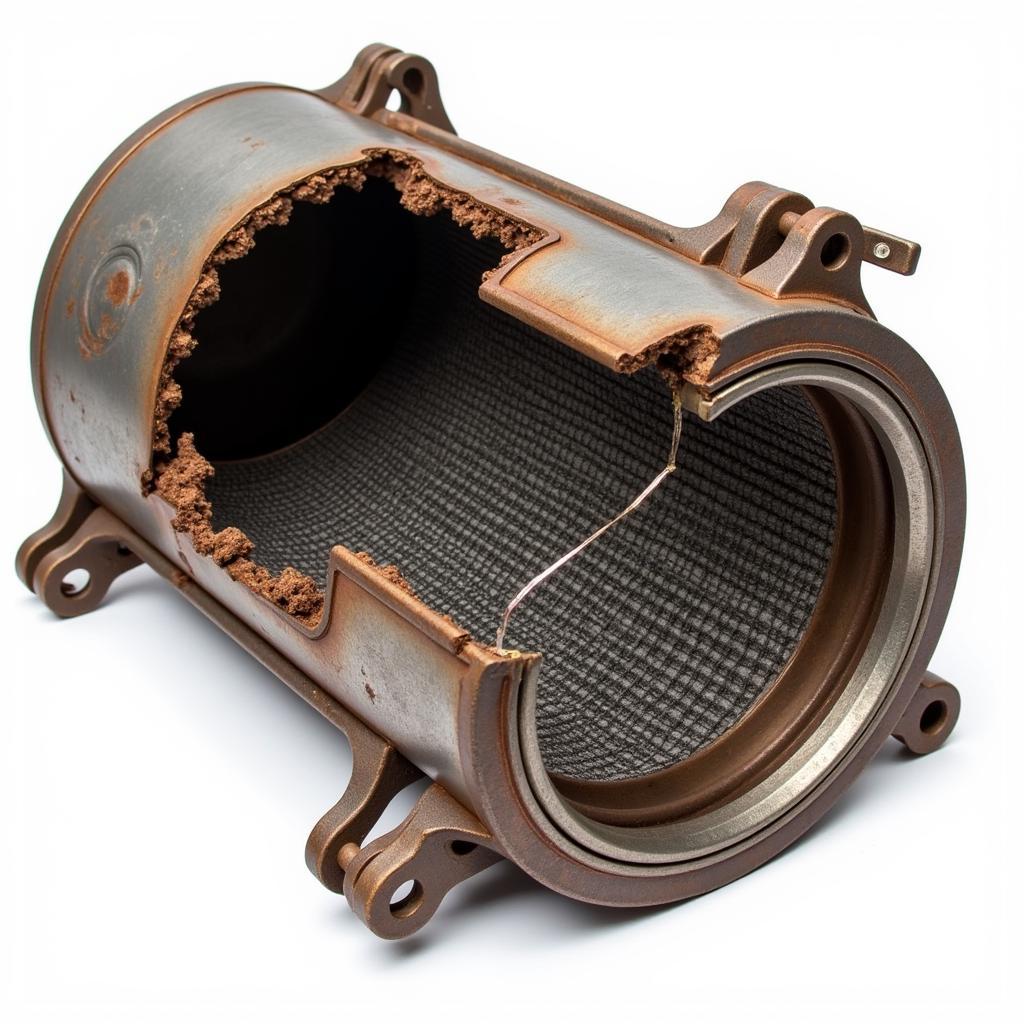Your cart is currently empty!

What Can Cause a Catalytic Converter Code on My VW?
If you’re a Volkswagen owner and you’ve seen a catalytic converter code pop up on your OBD-II scanner, you’re likely wondering, “what can cause a catalytic converter code on my VW?” Don’t panic! This is a common issue, and this guide will walk you through the most likely culprits, how to diagnose them, and what your options are for repair.
A catalytic converter is a vital part of your VW’s emissions system. Its job is to convert harmful pollutants in exhaust gases into less harmful substances before they are released into the atmosphere. When something goes wrong with this process, your VW’s computer will trigger a diagnostic trouble code (DTC), often related to the catalytic converter. You might find yourself searching for information on specific VW fault codes, such as those related to the vw golf 4 engine codes.
Common Causes of Catalytic Converter Codes in VWs
Several issues can trigger a catalytic converter code. Let’s explore the most common ones:
Faulty Oxygen Sensors
Oxygen sensors play a crucial role in monitoring the efficiency of the catalytic converter. A malfunctioning sensor can send incorrect data to the car’s computer, leading to a catalytic converter code, even if the converter itself is fine. Sometimes, the code might point to other seemingly unrelated issues, like a vw obd code p0304, which indicates a misfire in cylinder 4. While seemingly unrelated, a persistent misfire can damage the catalytic converter over time.
Engine Misfires
As mentioned above, engine misfires can send unburnt fuel into the exhaust system, overheating the catalytic converter and potentially damaging it. This is why addressing engine issues promptly is crucial. A code like 2009 vw passat 2.0 turbo code po171 p0301 p119a p0304 highlights how multiple issues can occur simultaneously, and addressing them individually is essential for proper vehicle maintenance.
 Faulty Oxygen Sensor in VW
Faulty Oxygen Sensor in VW
Rich Fuel Mixture
A rich air-fuel mixture, meaning too much fuel compared to air, can also overload the catalytic converter. This can occur due to faulty fuel injectors, a malfunctioning mass airflow sensor (MAF), or other fuel system issues.
Leaky Exhaust System
A leak in your exhaust system before the catalytic converter can introduce excess oxygen, disrupting the conversion process and triggering a code.
Damaged Catalytic Converter
Finally, and perhaps most obviously, the catalytic converter itself might be damaged. Over time, the internal honeycomb structure can break down or become clogged, reducing its efficiency.
 Damaged Catalytic Converter in VW
Damaged Catalytic Converter in VW
Diagnosing the Problem
Diagnosing the root cause of a catalytic converter code requires a systematic approach:
- Read the Codes: Use an OBD-II scanner to retrieve the specific code(s). This is the first step in pinpointing the issue. Sometimes, seemingly unrelated codes, like the vw polo fault code 01598, could indicate an underlying issue that indirectly affects the catalytic converter.
- Inspect the Exhaust System: Look for any leaks or damage in the exhaust system, especially before the catalytic converter.
- Check Oxygen Sensor Readings: Use a scan tool to monitor the oxygen sensor readings. Fluctuating readings before the converter and steady readings after indicate a functioning converter. Conversely, if the readings after the converter fluctuate as well, it may suggest a faulty converter.
- Test Fuel System Components: Check for proper fuel pressure and injector function. A rich fuel mixture is a common culprit. You can also check for specific codes related to fuel system components, such as the p2201 code vw passat, which points to a NOx sensor circuit range/performance issue.
“Regular maintenance is key to preventing catalytic converter issues. Addressing engine misfires and fuel system problems promptly can save you a costly repair down the line,” advises Hans Müller, a senior automotive technician with over 20 years of experience specializing in European vehicles.
What to Do If You Have a Catalytic Converter Code
Once you’ve diagnosed the problem, you have several options:
- DIY Repairs: If you’re mechanically inclined, you can attempt some repairs yourself, like replacing oxygen sensors. However, catalytic converter replacement is generally best left to professionals.
- Professional Repair: A qualified mechanic can diagnose and repair the issue accurately and efficiently.
- Replacement: If the catalytic converter is damaged, replacement is usually the only option.
“While aftermarket catalytic converters are often cheaper, using an OEM part ensures proper fit and performance, especially with complex emissions systems like those found in modern VWs,” adds Mr. Müller.
Conclusion
A catalytic converter code on your VW can be caused by several factors, ranging from faulty oxygen sensors to a damaged converter itself. Understanding what can cause a catalytic converter code on my VW allows you to address the issue effectively. By following the diagnostic steps outlined above, you can pinpoint the problem and choose the best course of action. If you need expert assistance, don’t hesitate to reach out to us at VCDSTool at +1 (641) 206-8880 and our email address: vcdstool@gmail.com or visit our office at 6719 W 70th Ave, Arvada, CO 80003, USA.
by
Tags:
Leave a Reply